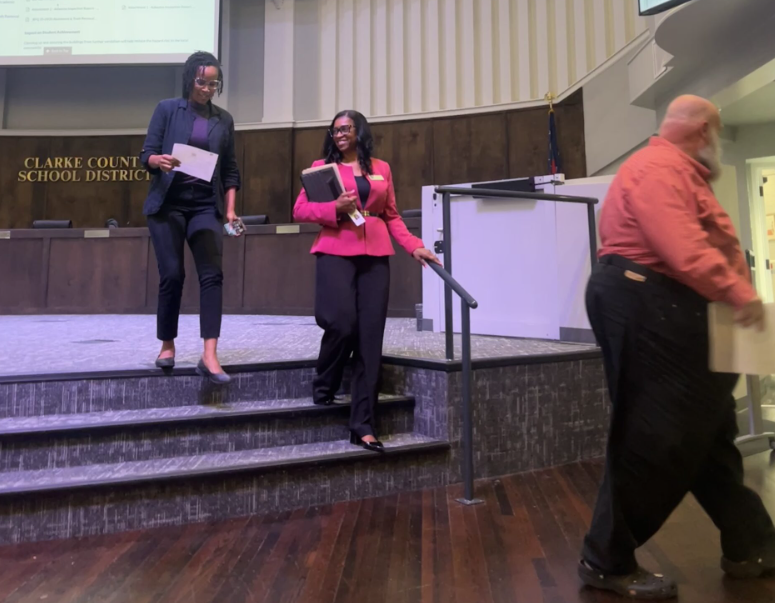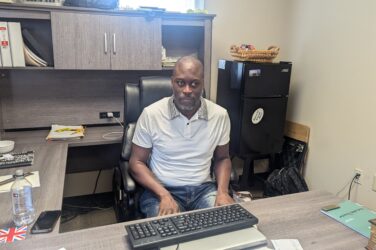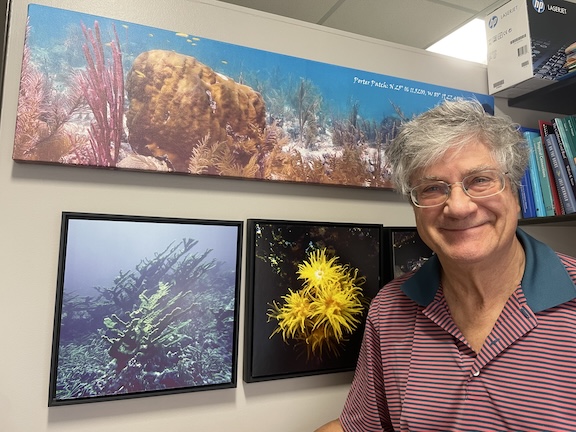LaKeisha Gantt, Clarke County Board of Education former president and current member, is campaigning in the 2026 Athens-Clarke County mayoral election.
Q: As someone who has lived in Athens your whole life, what inspired you to run for mayor?
A: It wasn’t really one single moment or turning point. It’s something that’s been in my mind for a while. With each issue that you experience, or that you witness loved ones or friends or community members experience, it lights a fire to want to do something. For me, it just became clear that running is the next step, combining my experiences and my love for the Athens community with increased skills for governance. I think it was a combination of lived experiences, passion and the urgency to do something.
Q: A central message of your campaign is “Affordable Athens” and uplifting unheard voices. How do you plan to put that into action?
A: I think there are always opportunities to include unheard voices and that will look a variety of different ways. That is continuing to be in the spaces where people are and listening. Sometimes we think that the people that show up at meetings are the only ones that care, but it shouldn’t be, “Are these the people that care?” but “Who does this impact?” Sometimes the people that it impacts won’t be at the meeting. I also think one of the goals of the campaign is to get people involved who may not have ever been involved in politics at all. I don’t want a campaign that is just for people who are already engaged in politics.
Q: Athens has faced rising housing costs and a growing affordability crisis. How do you plan to balance the city’s growth while addressing this?
A: That is a challenge for anyone. I tend to think that if we can talk about affordability for people who have the least, if we can at least start there, then eventually most of us will benefit. We have people here that have been here for longer than four years, who will be here for longer than four years, who were born here, that don’t have a place to live or cannot afford where they are living, or who are being taxed out of their homes. We have to ask, “Who are the communities that are most impacted?” and start a plan from there.
Q: Homelessness has become more visible in recent years. What do you see as the roots of this, and how should the city respond?
A: I don’t believe there’s one root cause. There are a lot of different variables that impact a person’s trajectory: falling on hard times, a job that doesn’t pay enough, health issues, significant shifts in family makeup or mental health-related issues. Whatever our solutions are — be it more shelters, emergency shelters, funding for existing shelters, or more housing — they have to start with the humanity of the person. The solution is not locking homeless people up. I think it’s important that we take a look at and work hard to pursue the goal of creating an affordable housing community. I do understand that not everyone will pursue permanent shelter, but we have to start with that in mind.
Q: You’ve mentioned raising wages for city employees. How would that be funded, and do you have a timeline in mind?
A: I think we’re still looking at what that might look like. If we say we want to be a community where people actually can live and thrive, and not just exist, it’s hard to do that if you’re not the leader, if you’re not doing that in your own government. I think it should be a priority. I know the budgeting process can be tense, but there is power with the mayor and commission. Once you set this as a goal, then you figure out how to work toward it, but you have to also say it is something that’s not negotiable. We are exploring ways that we can achieve that and make it a solution and a priority.
Q: How do you plan to connect with Athens’ large student population?
A: We have a couple of students who are part of our campaign, and they have been brainstorming on ways that we can be sure that we’re tapping into the student population. I like to think of this not just as speaking to the student population but bridging what I see is like a connection gap. For a long time, there are a few different worlds in Athens: the campus world and the student body, those who have, those who have not, those on this side of town and that side of town. I want students to be connected to the community that they are a part of because we’re all one community.
Comments trimmed for length and clarity.
Josie Acosta is a journalism major in Reporting I covering city-county government in the Grady College of Journalism and Mass Communication at the University of Georgia.









Show Comments (0)